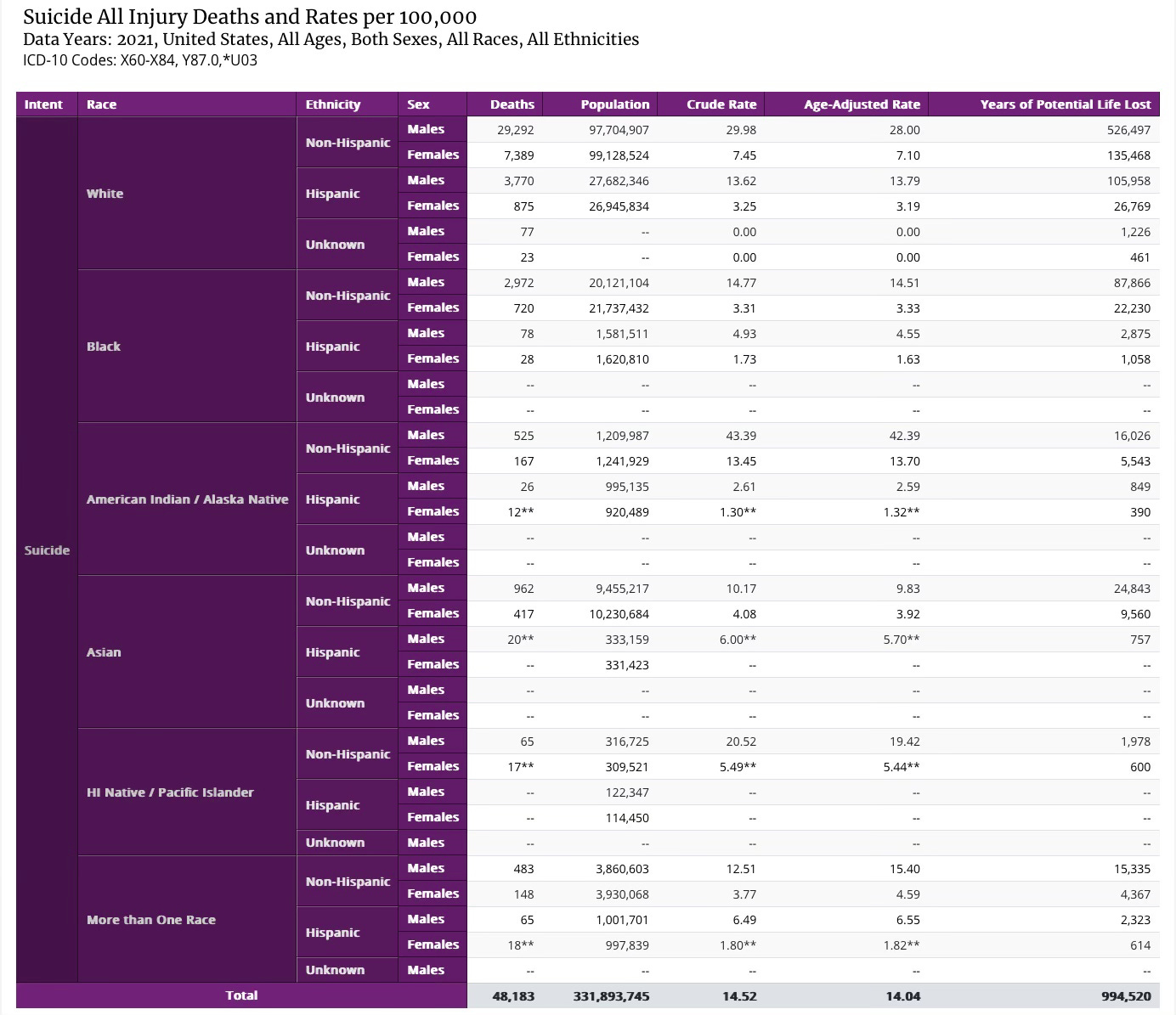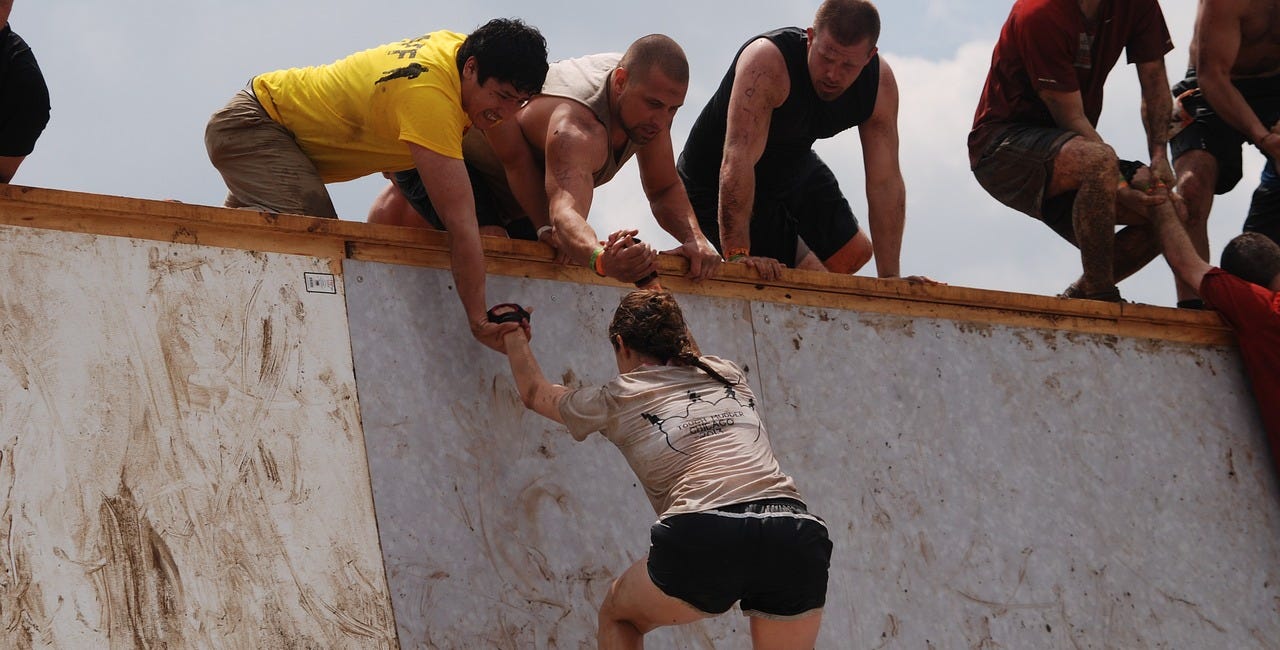Social Aggression Unchecked: How Cancel Culture Hurts Everyone Involved
Public Shaming and Social Aggression: Is This the World We Want to Live In?
“One’s dignity may be assaulted, vandalized, and cruelly mocked, but it can never be taken away unless it is surrendered” - Michael J. Fox
Cancel culture is an assault on a person’s dignity, leaving targets fumbling to pick up the pieces of their shattered identities. September is National Suicide Prevention Month, and it’s time that we talked about the very real psychological impacts that being canceled and shunned has on both the target and the witnesses who stand on the sidelines. It’s also time to start forging the pathway out.
Mobbing: A Collective Attack
The more general term for this kind of treatment is mobbing. Janice Harper defines mobbing as:
Group aggression and it is distinct from bullying because the people who engage in it include not only “bullies,” but once supportive, friendly, non-aggressive people who have suddenly been encouraged to see you as a threat.
She would know. Not only was she mobbed at the University of Tennessee in 2009, but she was a cultural anthropologist specializing in conflict and social aggression who taught courses on genocide.
In her book, Mobbed! What to do when they really are out to get you she describes the effects of mobbing as:
A devastating attack on your identity and humanity, and because it is so devastating, it will rapidly reduce you to tears. It will take you back to an emotional state of childhood when the bullies were picking on you. It will make you want your mother. It will leave you feeling powerless.
Like Harper, I’ve lived through this myself in the Clinical Mental Health Counseling Program coincidentally also at the University of Tennessee.
The experience left me feeling stunned and hollow. I sat for days turning a moving sand art frame over and over watching the grains fall in calming dunes, waiting to feel safe again.
Real Lives, Real Consequences
Canceling, as the latest evolution of mobbing, follows a similar path with the target’s reputation often dismantled in the public eye. Threats, doxxing, stalking, and career destruction are just the tip of the iceberg. Victims can suffer family estrangement, harassment, struggle sessions, ostracism, and violence. Real violence.
Harper relates in the book that it’s not uncommon for people to suffer strokes, heart attacks, or even develop cancer right after being mobbed. Some lash out in violent rampages as detailed in the documentary, Murder by Proxy. Others turn their rage inward.
From my own experience, I would burst into tears and have panic attacks for weeks. I experienced waves of shame and confused thoughts. It took many months before I felt safe for any length of time and it’s only been very recently that I’ve found a direction that I want to go.
I consider myself one of the lucky ones.
In the Canceling of the American Mind, Greg Lukianoff and Rikki Schlott cover many aspects of how cancel culture has torn through people's lives. One of the stories they detail is Dr. Carole Hooven, a lecturer of human evolutionary biology at Harvard. She was mobbed after an interview in which she confirmed that biological sex is real.
In the course of her cancellation, she was publicly attacked on Twitter by Laura Simone Lewis the director of the Diversity and Inclusion Task Force from her own department at Harvard. Following that ordeal, she reported having intrusive thoughts of suicide.
Two others that I am aware of had the most tragic outcomes. Mike Adams, a professor at the University of North Carolina, and Richard Blkszto an educator from Toronto and FAIR chapter leader both took their own lives after being harassed, canceled, and ostracized.
This recording shows how Richard was gaslit and publicly humiliated in front of hundreds of other educators in a DEI training that began the cascade of depression culminating in his suicide.
According to Will Storr, in The Status Game:
Although the causes of suicide are many and complex, lack of status is a known common driver. Tellingly, it’s sudden movements down the game that can be the most dangerous.
That is not especially new information as history will attest, the Crash of ‘29 and many other drastic reversals of fortune led to clusters of people taking their own lives. It should be straightforward to find ways to unify groups in ways that avoid causing individuals to be mobbed to the point of suicide yet the DEI training and ideology if anything seems to goad on that outcome.
Current statistics attest, suicide is at epidemic proportions, particularly for white men, the main target of Critiical Theories Ideology.
Bystanders, Hidden Costs
The damage caused by mobbing and cancel culture doesn’t end with the primary victim. Witnesses—whether friends, colleagues, or online followers—also suffer.
Many bystanders experience guilt for not intervening, and they are left with a deep sense of fear, knowing that the same fate could befall them. Trust within the community is shattered, and everyone’s mental health takes a toll.
This is a point often overlooked in the conversation about cancel culture: it creates an atmosphere of fear and suspicion, where people feel unsafe to express their thoughts or support others. In this social climate, trust is replaced by paranoia, and mental health deteriorates on a broad scale. Sound familiar?
The Destruction of Life’s Meaning
Playwright, Henrik Ibsen coined the term “Soul Murder”– the willful destruction of a person’s love of life, of their will to persevere. Being canceled strips away your identity as a worthy human being, what’s left is a hollowed-out shell of the person you were.
We would be wise to think in these terms before we join in calls that someone be fired or ostracized, even if we are sure they deserve it. Our justice system was created with the stipulation that people would be considered innocent until proven guilty because it provides protection from being unfairly condemned.
That is a principle worth upholding because what you permit yourself to do to others, you also permit them to do to you.
If you are being mobbed or are in crisis, there is hope.
The Challenge Ahead
Cancel culture is a dangerous temptation. Once you label someone as bigoted, racist, sexist, or whatever flavor of ‘bad’ that’s in fashion, it’s a short trip to fully justify whatever harsh treatment you see fit. In our increasingly interconnected world, it is a ferocious tool of social control, like an interpersonal nuclear weapon.
This is why it’s time to ask ourselves, is this a world we want to live in? Or is it time that we start to apply the idea of “innocent until proven guilty” more broadly?
We can have a reasonably harmonious society. If we are going to get there we have to start rebuilding trust. To begin we can stop labeling each other and start having difficult conversations. When we see each other as more than our mistakes or controversial opinions we can come together over our shared humanity. We are facing very real challenges that require cooperation to overcome.
The goal should be unity–not destruction.
No one should feel forced to surrender their dignity in the face of social aggression. By fostering respect and understanding we can move forward into the unknown together rather than tearing each other apart and slipping back into the past.
Our society is only as strong as the values we uphold. If we want to live in a world where human dignity is respected, we must resist the siren song of self-righteous condemnation and seek understanding.
Cancel culture thrives on division; unity and trust are the antidote. The next time we are tempted to cancel someone, pause and ask: Am I creating a world that I want to live in? Do I want others to resolve their differences with me like this? If more people could do this we just might find ourselves coming closer, one difficult conversation at a time.
About
Diogenes in Exile began after I returned to grad school to pursue a degree in Clinical Mental Health Counseling at the University of Tennessee. What I encountered, however, was a program deeply entrenched in Critical Theories ideology. During my time there, I experienced significant resistance, particularly for my Buddhist practice, which was labeled as invalidating to other identities. After careful reflection, I chose to leave the program, believing the curriculum being taught would ultimately harm clients and lead to unethical practices in the field.
Since then, I’ve dedicated myself to investigating, writing, and speaking out about the troubling direction of psychology, higher education, and other institutions that seem to have lost their way. When I’m not working on these issues, you’ll find me in the garden, creating art, walking my dog, or guiding my kids toward adulthood.
You can also find my work at Minding the Campus
Diogenes in Exile is reader-supported. If you find value in this work, please consider becoming a paid subscriber or buying Thought Criminal merch to keep this mission alive.






